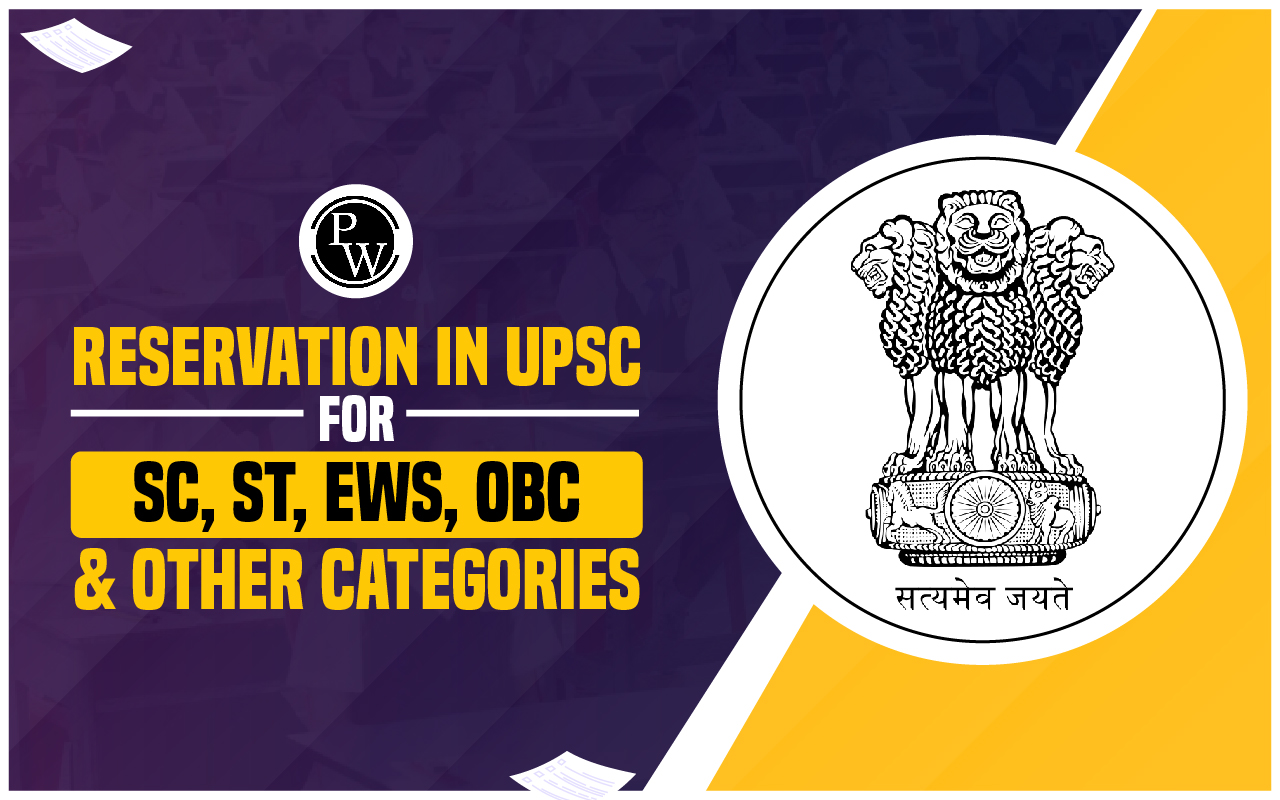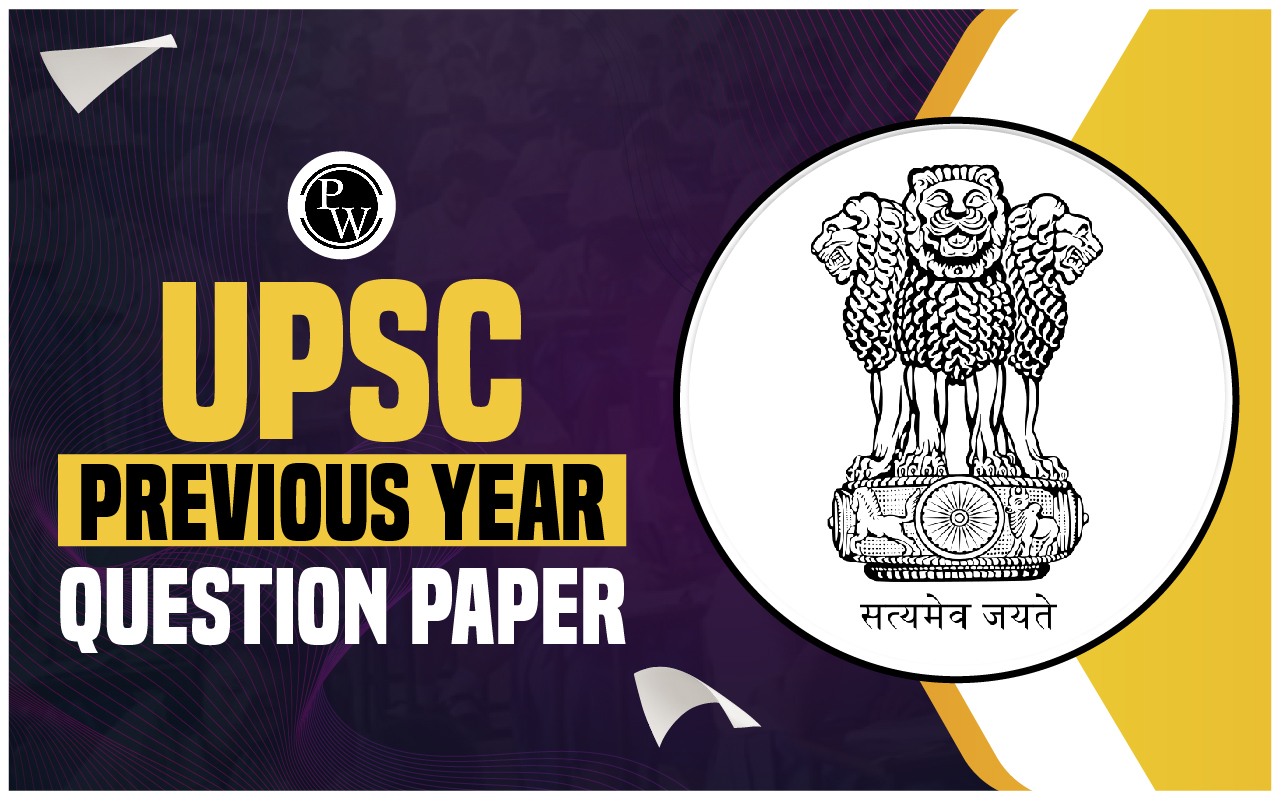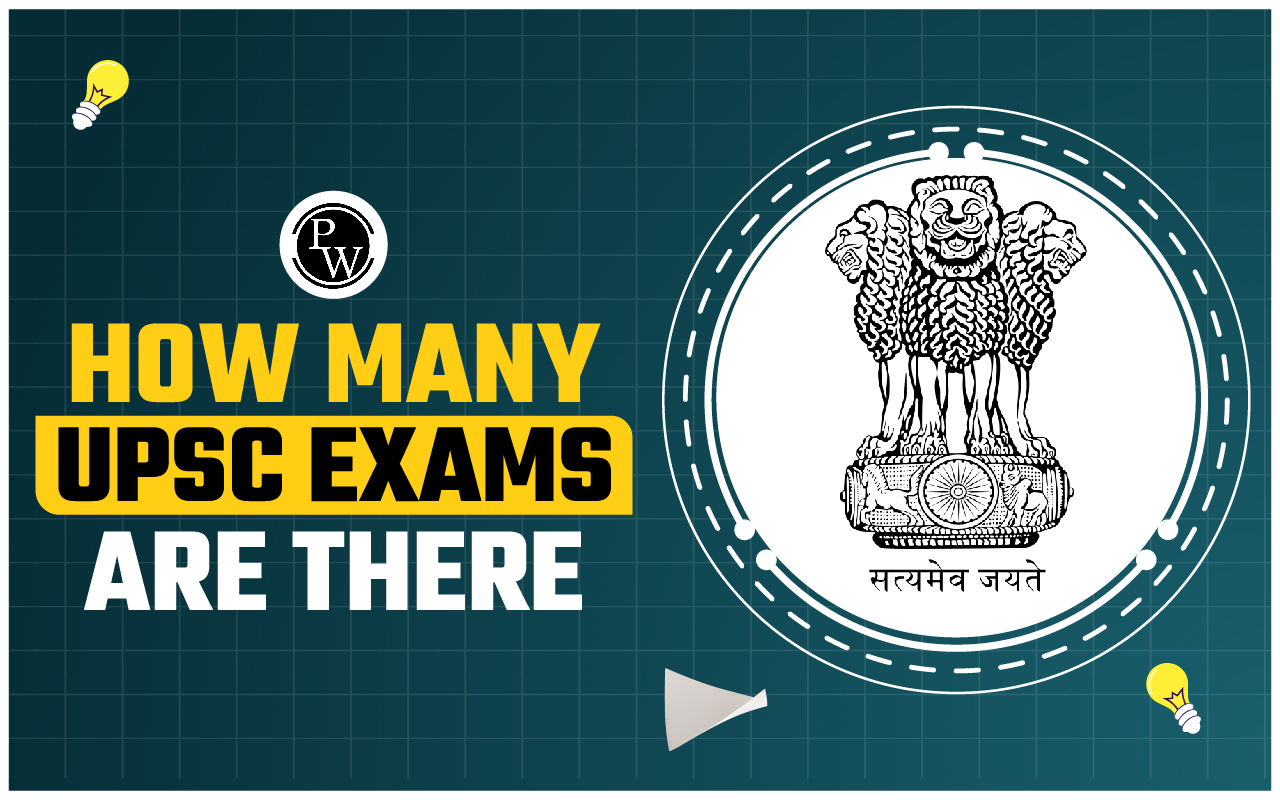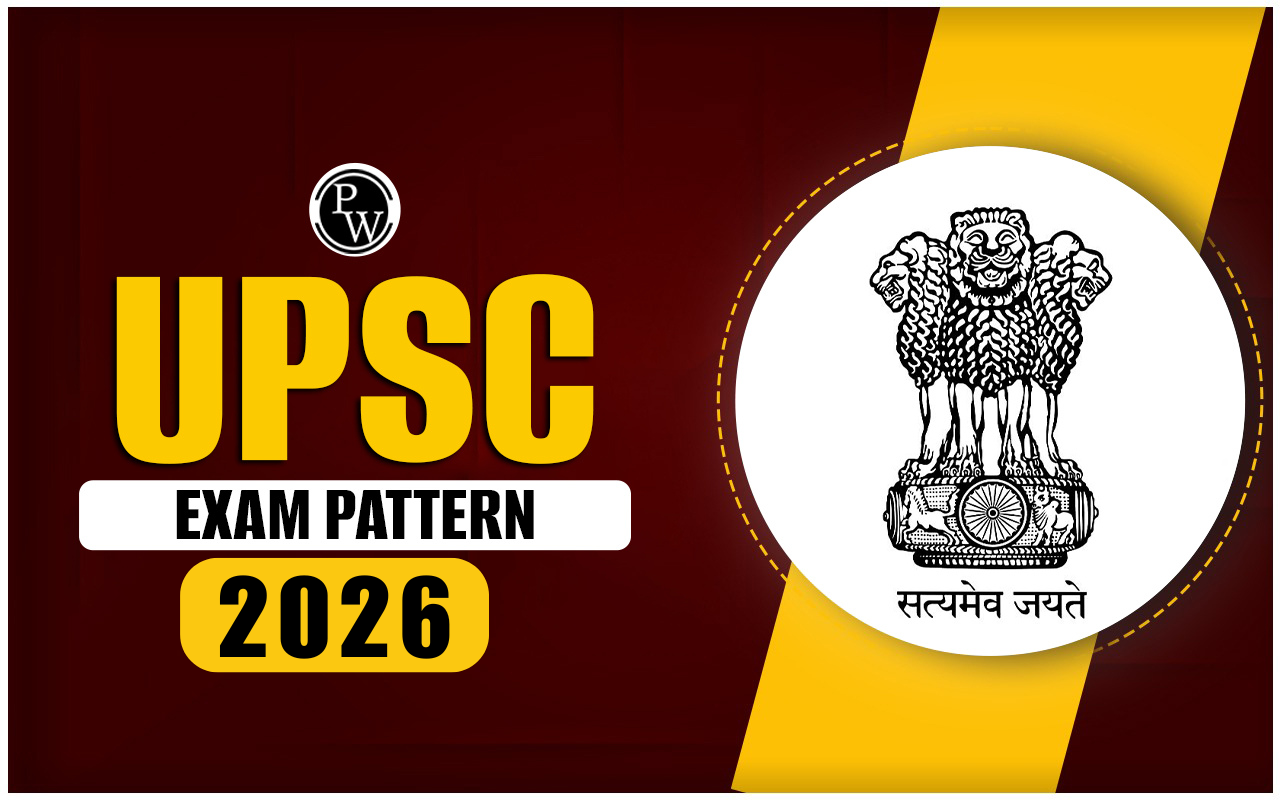
Section 6A of Citizenship Act: In a 4:1 majority judgement, the Supreme Court upheld the constitutional validity of Section 6A of the Citizenship Act, 1955. This section allowed persons of "Indian origin" who entered Assam before January 1, 1966, and who had lived there since then to be considered citizens of India.
It is expected that this verdict will affect the National Register for Citizens (NRC) in the Assam state. Further, this judgement also recognised the Parliament’s power to grant citizenship under reasonable circumstances. With this development, issues like citizenship and Section 6A of the Citizenship Act become crucial for the upcoming UPSC exam.Definition of Citizenship
To begin with basics, citizenship refers to the legal relationship between an individual and the state, granting the individual certain rights and obligations. In simpler terms, a citizen enjoys rights such as voting, participating in political life, and receiving protection under the law. In return, citizens are expected to fulfill responsibilities, such as obeying laws, paying taxes, and contributing to society.Citizenship of India
In India, Part II of the Constitution identifies citizenship through Articles 5 to 11 . It does not provide elaborate provisions but establishes basic criteria for citizenship and provides for a single citizenship . Subsequent legislation, such as the Citizenship Act of 1955, expanded on these principles and set out the processes for acquiring and losing citizenship. A person can acquire citizenship in India by: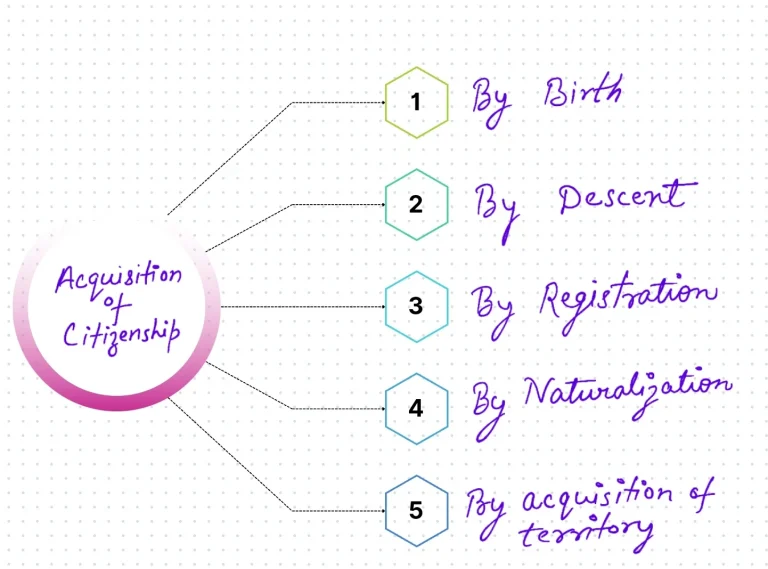 Also Read -
Difference Between Nationality and Citizenship in India, Definition and Example
Also Read -
Difference Between Nationality and Citizenship in India, Definition and Example
Citizenship Act 1955
Under Article 11 , the constitution empowers Parliament to make any provision with respect to the acquisition and termination of citizenship. The Citizenship Act of 1955 was enacted under this authority to provide a comprehensive framework for acquiring Indian citizenship. It outlines various ways to obtain citizenship, including by birth, descent, registration, and naturalization. The Citizenship Act 1955 also specifies conditions under which citizenship can be terminated , such as if a citizen voluntarily acquires citizenship of another country. Over the years, this act has been amended several times to cater to the evolving needs of the country.Citizenship Amendment Acts
The Citizenship Amendment Acts refer to a series of six amendments to the Citizenship Act of 1955 till 2019. These amendments are:| Citizenship Amendment Acts | |
| Title | Key Points |
| Citizenship (Amendment) Act 1986 | Amended Section 3 : Citizenship granted to those born in India on or after Jan 26, 1950, but before July 1, 1987, if one parent is an Indian citizen. |
| Citizenship (Amendment) Act 1992 | Amended Section 4: Removed gender discrimination; citizenship by descent allowed from either parent. Conditions for registration at an Indian consulate within a year. |
| Citizenship (Amendment) Act 2003 | Introduced definition of "illegal migrant." Allowed creation of a National Register of Citizens (NRC). Children born after 2004 to illegal migrants are not eligible for citizenship. |
| Citizenship (Amendment) Act 2005 | Enhanced the privileges for Overseas Citizens of India (OCI ), such as multiple entry, lifelong visas to visit India, and exemption from reporting to police. (excluding Pakistan and Bangladesh). |
| Citizenship (Amendment) Act 2015 | Modified OCI provisions, merging OCI and Person of Indian Origin (PIO) schemes. Minor children lose OCI status if a parent renounces it. Also, fast-tracked the process for citizenship for certain migrants. |
| Citizenship (Amendment) Act 2019 | Provides a pathway to citizenship for Hindus, Sikhs, Buddhists, Jains, Parsis, and Christians from Afghanistan, Bangladesh, and Pakistan who entered India before December 31, 2014 . |
Provision of Section 6A of Citizenship Act
Section 6A of the Citizenship Act was introduced to implement the Assam Accord signed in 1985. The provision addresses citizenship for those who entered Assam after January 1, 1966, but before March 25, 1971. It provides two classifications:- Persons of Indian origin who entered Assam before January 1, 1966, and have been ‘ordinarily resident’ in the state are recognized as Indian citizens .
- Individuals who arrived between January 1, 1966, and March 25, 1971, would be registered as foreigners and, after 10 years, could apply for citizenship.
Recent Supreme Court Judgement on Citizenship
Section 6A of the Citizenship Act was challenged on gourds of ‘discriminatory cut-off dates’ and potential violations of the rights of Assam's indigenous people. However, the Supreme Court (SC) affirmed Parliament's authority to set different citizenship conditions due to Assam's unique migrant situation, which does not violate Article 14. The majority also confirmed the constitutionality of the cut-off dates of January 1, 1966, and March 25, 1971, stating that Section 6A and the Citizenship Rules, 2009, offer clear criteria for citizenship applications and a fair process.Relevance of This Issue for UPSC
For those wondering why is Section 6A of the Citizenship Act and the recent Supreme Court judgement important for UPSC aspirants? Here are some key reasons:- Constitution Provision: Citizenship is an important topic under Indian polity and one of the important topics of the UPSC syllabus.
- Contemporary Issues: Citizenship, migration, and national identity are ongoing discussions in India. They are likely to be featured in General Studies Paper 2 and Essay Papers.
- Judicial Interpretations: Understanding how the judiciary interprets laws, especially regarding issues like fundamental rights and regional autonomy, is essential for the Polity and Governance sections of the exam.
- Impact on Policies: Knowing how this judgment affects government policies can help aspirants analyze and evaluate these policies, which is important for public administration topics.
| UPSC Related Articles | ||
| UPSC Prelims Questions | NCERT for UPSC Exam 2025 | UPSC Mains Admit Card |
| UPSC Mains Exam Pattern | Prepare for the UPSC Interview | Constitutional Bodies in India |
Section 6A of Citizenship Act FAQs
What is Section 6A of the Citizenship Act?
Section 6A addresses citizenship for individuals who entered Assam between January 1, 1966, and March 25, 1971, as part of the Assam Accord.
Why is Section 6A important for UPSC?
It is crucial for understanding India's citizenship laws, constitutional law, and regional issues, all key areas in the UPSC syllabus.
What did the Supreme Court rule on Section 6A?
The Supreme Court upheld the constitutional validity of Section 6A, maintaining its relevance for Assam's unique citizenship situation.
What is the Citizenship of India Act?
The Citizenship of India Act refers to the Citizenship Act of 1955, which outlines the criteria and processes for acquiring and losing Indian citizenship.
What is the Citizenship Act of 1986?
The Citizenship (Amendment) Act of 1986 amended the Citizenship Act to grant citizenship to those born in India under specific conditions, ensuring rights for individuals born to Indian parents.
Talk to a counsellorHave doubts? Our support team will be happy to assist you!

Free Learning Resources
PW Books
Notes (Class 10-12)
PW Study Materials
Notes (Class 6-9)
Ncert Solutions
Govt Exams
Class 6th to 12th Online Courses
Govt Job Exams Courses
UPSC Coaching
Defence Exam Coaching
Gate Exam Coaching
Other Exams
Know about Physics Wallah
Physics Wallah is an Indian edtech platform that provides accessible & comprehensive learning experiences to students from Class 6th to postgraduate level. We also provide extensive NCERT solutions, sample paper, NEET, JEE Mains, BITSAT previous year papers & more such resources to students. Physics Wallah also caters to over 3.5 million registered students and over 78 lakh+ Youtube subscribers with 4.8 rating on its app.
We Stand Out because
We provide students with intensive courses with India’s qualified & experienced faculties & mentors. PW strives to make the learning experience comprehensive and accessible for students of all sections of society. We believe in empowering every single student who couldn't dream of a good career in engineering and medical field earlier.
Our Key Focus Areas
Physics Wallah's main focus is to make the learning experience as economical as possible for all students. With our affordable courses like Lakshya, Udaan and Arjuna and many others, we have been able to provide a platform for lakhs of aspirants. From providing Chemistry, Maths, Physics formula to giving e-books of eminent authors like RD Sharma, RS Aggarwal and Lakhmir Singh, PW focuses on every single student's need for preparation.
What Makes Us Different
Physics Wallah strives to develop a comprehensive pedagogical structure for students, where they get a state-of-the-art learning experience with study material and resources. Apart from catering students preparing for JEE Mains and NEET, PW also provides study material for each state board like Uttar Pradesh, Bihar, and others
Copyright © 2026 Physicswallah Limited All rights reserved.




